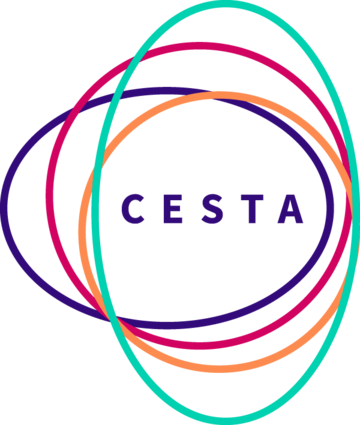Blog
A RA's Perspective

By
Huanvy Phan
This week, we conducted an interview with one of our Research Assistants, Nikki Tran ‘18, to get an insider’s perspective on doing research at CESTA. She has been working with CESTA as a RA for two quarters.
What project are you working on?
I am working on two projects in the Poetic Media Lab: Readers in Literary Criticism and Eye Tracking Study. For the summer, I have been mostly focusing my time on the Eye Tracking Study, which is in collaboration with the School of Education and examines the kinds of interpretative moves expert and novice (or emerging) readers make when they approach different texts. At this stage of the study, we are most interested in the readers’ audio interviews. For the past few weeks, my project partner Dee Dee and I have been transcribing those audio files and now we have moved onto the qualitative coding portion of the study.
What’s your favorite thing about the project?
Since the Eye Tracking Study is in collaboration with a professor at the School of Education, it has been enjoyable for me to examine and understand English literature not only from the perspective of a literary scholar or critic (which is how I usually think about books as an English major), but also now from an education-oriented lens. The education element of this project has allowed me to think back to my own experiences in English class and reflect on which particular academic moments motivated my decision to study English at Stanford.

What are some challenges you’ve faced with your project? How did you overcome them?
Once we started the qualitative coding portion of the project, it was initially a slow moving process. Even though we had all the transcripts ready to go, there were still some methodological and technical questions to be answered: How do we divide the media? Will the tools we are using give information we want? Which codes were relevant to our project? Is a negative response the same as a negative critique? How broadly should we define outside knowledge? There were many days where we were sending paragraph long emails (complete with screenshots and highlighting!) back and forth to everyone involved with the project or anyone who could help us with the project, from our faculty leads to to Stanford’s Social Science Resource Center to the customer support for our qualitative coding software. Eventually, we came to a consensus and found workarounds for our qualitative tools. As one of the project leads explained in an email, “experimentation, iteration, and exploration...This is part of the challenge, but also the exciting bit, of qualitative coding. Through iteration, we find a schema that best matches and respects the data, the question, and the experience of the participants.”
What is it like to collaborate with faculty?
Earlier in my Stanford career, I used to intimated by faculty. What would I say at office hours? What if I said something dumb? My experiences with faculty at CESTA have confirmed what I have learned over the course of three years: most faculty want to hear what you have to say. For the Eye Tracking Studying, Professor Levine has given Dee Dee and I a lot of independence; we tell her what has been working and what has been giving us difficulties. She takes our suggestions seriously and reminds us that she is always open to new ideas or approaches for the project.
Do you have any hopes/plans for future research projects?
For the Eye Tracking Study, I’m excited to see what the data tells us after we finish qualitative coding the media files. Does a mention of technique co-occur with a moment of interpretation? Are experts really interpreting more than emerging readers?
From the writer’s desk
I’m Huanvy Phan, a rising sophomore majoring in Asian American Studies and Philosophy. I’m working as a Communications Assistant this summer, which involves helping with the day-to-day intercommunications between the RAs and managing this blog. I’m beyond thrilled to be working with CESTA and I’m eager to dive into the world of digital humanities.